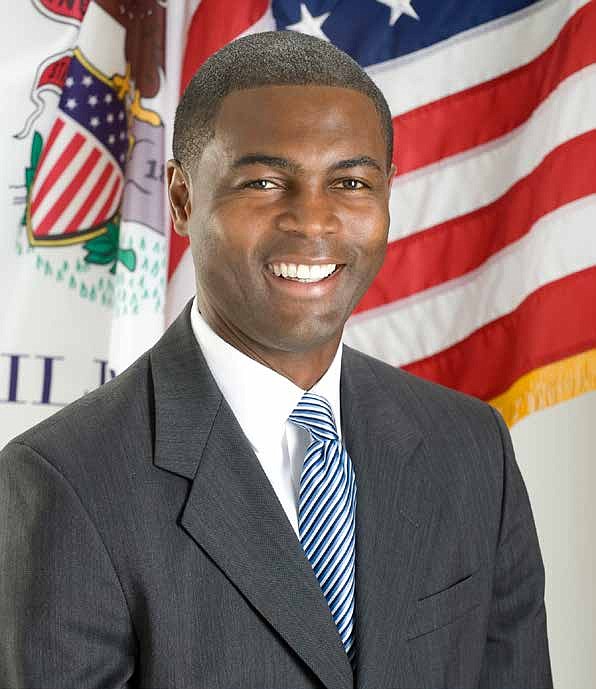STATE REP. FORD TALKS ABOUT THE IMPORTANCE OF EARLY
PROSTATE CANCER SCREENING
BY TIA CAROL JONES
Illinois State Representative LaShawn K. Ford at 48, went in to get a Colonoscopy and requested a Prostate Cancer screening. The first doctor told him at his age, he didn’t need it. But, Ford said, because
of the death of Chadwick Boseman, he wanted to get the screening. Ford received a Prostate Cancer diagnosis and underwent treatment. Now, he is encouraging other Black men to get screened.
“When you find out that you have prostate cancer, it’s one thing but when you find out how severe and how aggressive it is, its another thing,” said Ford, who represents the 8th District, which covers Austin, Oak Park, LaGrange, Berwyn, LaGrange Park, parts of Western Springs and Brookfield. “Right away, it’s a shock to have the big diagnosis of
Cancer. You don’t want to be told by a doctor that you have cancer.” Ford said it is important for men to stay close to a doctor. He said it could have been a death sentence for him if he had not gotten the
early diagnosis.
According to the Centers for Disease Control and Prevention, African American men are more likely to get prostate cancer than other men, they are more than twice as likely to die from prostate cancer than other men, and they get prostate cancer at a younger age African American men tend to have more advanced disease when found, and tend
to have a more severe type of prostate cancer than other men.
Ford said science doesn’t really include Black people in recommendations. He said Black men need to advocate for themselves to get these screenings. He said if you have insurance, the screenings are covered.
“I would tell men, the science for the majority population says that you probably shouldn’t get a screening until you’re 55, but the doctor told me that at 48, it appears I could’ve had prostate cancer for 10 years, because it was aggressive,” he said. “So, at 48, there is a likelihood that I had prostate cancer growing in me as early as 38. And, had I waited for the science to tell me to wait until I was 55, it would’ve been a death sentence.”
Ford said it is important for men to realize that there are doctors that prescribe to the mainstream recommendations. He said men don’t have to listen to them, he encouraged them to say, “this is what I want.”
“Black men die at a rate of two-to-one to white males. And, that’s where the disparity comes in, because Black men are diagnosed later than white men. Ford reiterated, that’s why Black men die two-to- one to white men,” he stated. “So, if you simply become aware and get your diagnosis, Black men won’t die at that rate.”
Ford said his primary care physician believed in the science of mainstream teaching. He said most doctors believe the recommendation that a prostate cancer screening should happen at age 55. But, Ford said by advocating himself, he told the doctor he wanted the screening done. Ford said he is cancer free.
“Science is really amazing, for women with breast cancer, early detection saves lives. it keeps the cancer from growing and metastasizing. Science is so good, that we can catch it, destroy it and live a healthy life,” he said.
Ford said critical race theory will help all professions that work with people get rid of their biases. He said when it comes to health care, doctors are trained by a biased institution and raised in a biased
family setting, and they bring their life experience to their profession. He said in most cases, it is thought that Black people are predisposed to certain diseases.
“That’s not true, Black people could actually live longer lives, if we advocate and tell the doctors that we’re going to advocate for ourselves. And, we have to advocate for better science including Black people in these clinical trials,” he said, adding it could eliminate some health disparities. “The disparities come because science ignores Black health.”
Ford said he had surgery Jan. 28. He was able to do a 5K on Feb. 28, and in June, did a 50-mile bike ride.
“That right there is a blessing and what it tells me is early detection prevents, saves lives and helps you recover faster. I’m recovered and that’s a blessing to know I’m cancer free,” he said. “I wanted to announce I had cancer and I beat it.”

